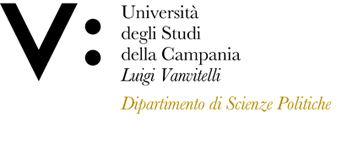Andrea RUSSO
Insegnamento di SISTEMI COMPARATI DELLA PROPRIETÀ E DELL'ENERGIA
Corso di laurea in SCIENZE POLITICHE
SSD: IUS/02
CFU: 9,00
ORE PER UNITÀ DIDATTICA: 54,00
Periodo di Erogazione: Primo Semestre
Italiano
| Lingua di insegnamento | italiano |
| Contenuti | Corso non suddiviso in moduli |
| Testi di riferimento | - A.Gambaro, Proprietà in diritto comparato, voce in “Digesto delle discipline privatistiche”, Sezione civile, XV volume, pp. 502-525). |
| Obiettivi formativi | Conoscenza e capacità di comprensione |
| Prerequisiti | E’ preferibile aver sostenuto l’esame di diritto privato comparato (sistemi giuridici comparati) |
| Metodologie didattiche | Lezione frontali |
| Metodi di valutazione | esame orale. La prova orale si prefigge l’obiettivo di accertare le capacità di saper descrivere come è oggi concepito il diritto di proprietà nelle principali tradizioni giuridiche occidentali e la capacità di ampliare il proprio angolo di visuale ed essere in grado di cogliere le analogie e differenze delle varie tradizioni giuridiche, anche con riferimento ai problemi attinenti l’energia e l’ambiente. |
| Altre informazioni | frequenza non obbligatoria |
| Programma del corso | Aspetti comparatistici del diritto di proprietà. Visione generale e pluralità di significati nelle diverse epoche e tradizioni. |
English
| Teaching language | italian |
| Contents | Course not divided into modules |
| Textbook and course materials | - A.Gambaro, Proprietà in diritto comparato, voce in “Digesto delle discipline privatistiche”, Sezione civile, XV volume, pp. 502-525). |
| Course objectives | Knowledge and understanding |
| Prerequisites | It is preferable to have taken the exam of comparative private law (comparative legal systems) |
| Teaching methods | frontal lessons |
| Evaluation methods | oral examination. The oral exam aims to ascertain the ability to describe how the right of ownership is conceived in the main western legal traditions and the ability to widen one's angle of view and be able to grasp the similarities and differences of the various legal traditions, also with reference to the problems concerning energy and the environment. |
| Other information | course frequency not mandatory |
| Course Syllabus | Comparative aspects of property law. General vision and plurality of meanings in different eras and traditions. |








